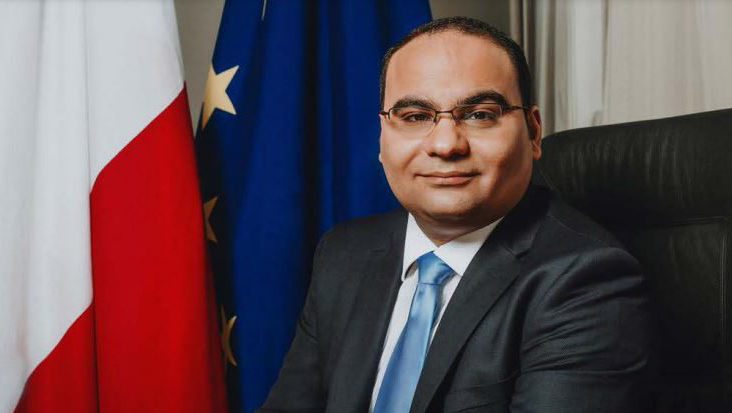Minister for Finance and Employment Clyde Caruana has outlined his vision for Malta’s economy, saying the Government’s “ultimate goal” is to continue building a diversified economy that welcomes entrepreneurs, supports innovation, and sustains highly skilled and well-paid jobs.
Writing in February’s edition of the Malta Financial Services Oversight newsletter, Mr Caruana said that the time has come for Malta to take stock of its employment policies and address the new challenges that have emerged.
Mr Caruana drew up the 2014 policy which saw the workforce increase from 180,000 to 260,000, with an increase in female participation and a large influx of migrant labour.
This policy laid the foundations for the strong economic growth seen in the last years, with the Government generating surpluses and lowering the debt-to-GDP ratio from about 70 per cent in 2013 to 43 per cent at the beginning of 2020.
However, during an interview with The Times in December, he said that the current policy was “exhausted”.
In the final week of January, the Minister launched a consultation for the drafting of a revised employment policy, due to be published in October, where he acknowledged that the large amount of foreign workers present in Malta, numbering some 67,000, put stress on the country’s infrastructure, education, healthcare and housing.
Mr Caruana also highlighted female participation in the workforce, which increased from 52 per cent to 66 per cent between 2014 and 2020, and the participation of persons with disability, which more than doubled over the same years.
Writing in the Financial Services Oversight newsletter, he said that the Government is “determined to continue supporting and sustaining the increase in the female participation and persons with disabilities in the workforce.”
“We must also address the prevalent skills gap in Malta and the need for wage increases backed by increases in productivity in certain sectors,” he said.
In fact, one of the points up for consultation is the lack of salary increases in specific wage areas, leading to deteriorating standards of living for workers, while another addresses the downward pressure put on salaries by workers coming from countries outside of the European Union (known as Third Country Nationals).
Meanwhile, the upskilling and re-skilling of the Maltese workforce, the threats and opportunities faced by low-skilled local workers, and the demand of certain industries, like finance, gaming and engineering, for high-skilled workers are also priority areas for reform.
Mr Caruana assured readers that the Government would not be resting on its laurels. “There is plenty more work to be done if we are to rebuild back better our economy, stabilise our finances, and secure the prosperity of future generations of Maltese to come,” he said.
“I look forward to sharing our strategy for achieving these goals in the near future.”
Featured Image:
Malta Financial Services Oversight Newsletter February 2021
Self-employed, employees and companies contribute €2.1 billion in 2023
Parliamentary data reveals five-year growth trends in fiscal contributions
MFSA concludes review of Crypto-Asset Service Providers following MiCA implementation
The Authority provided clear expectations and guidance to address certain concerns.
Malta Development Bank to launch schemes supporting sustainable development and creative sector
In 2024, the MDB launched the SME Guarantee Scheme and the Guaranteed Co-Lending Scheme






